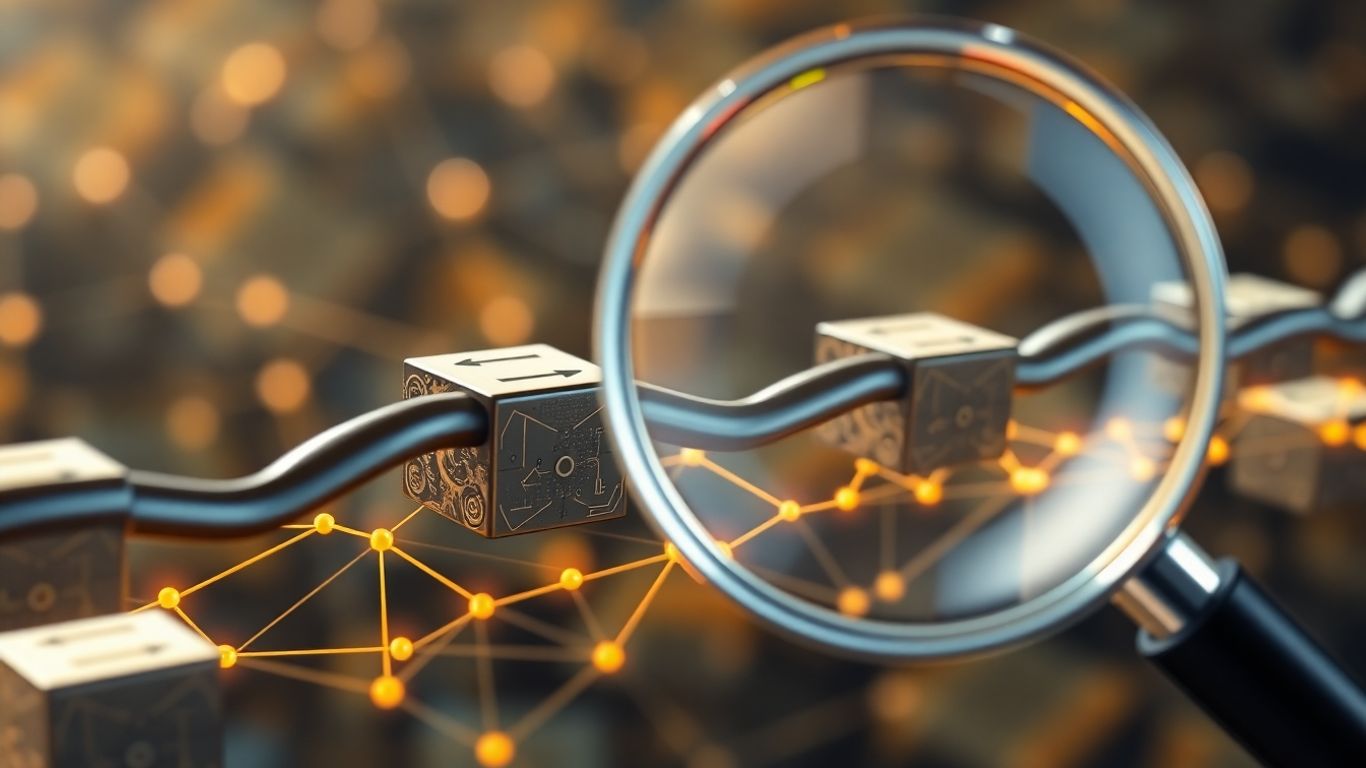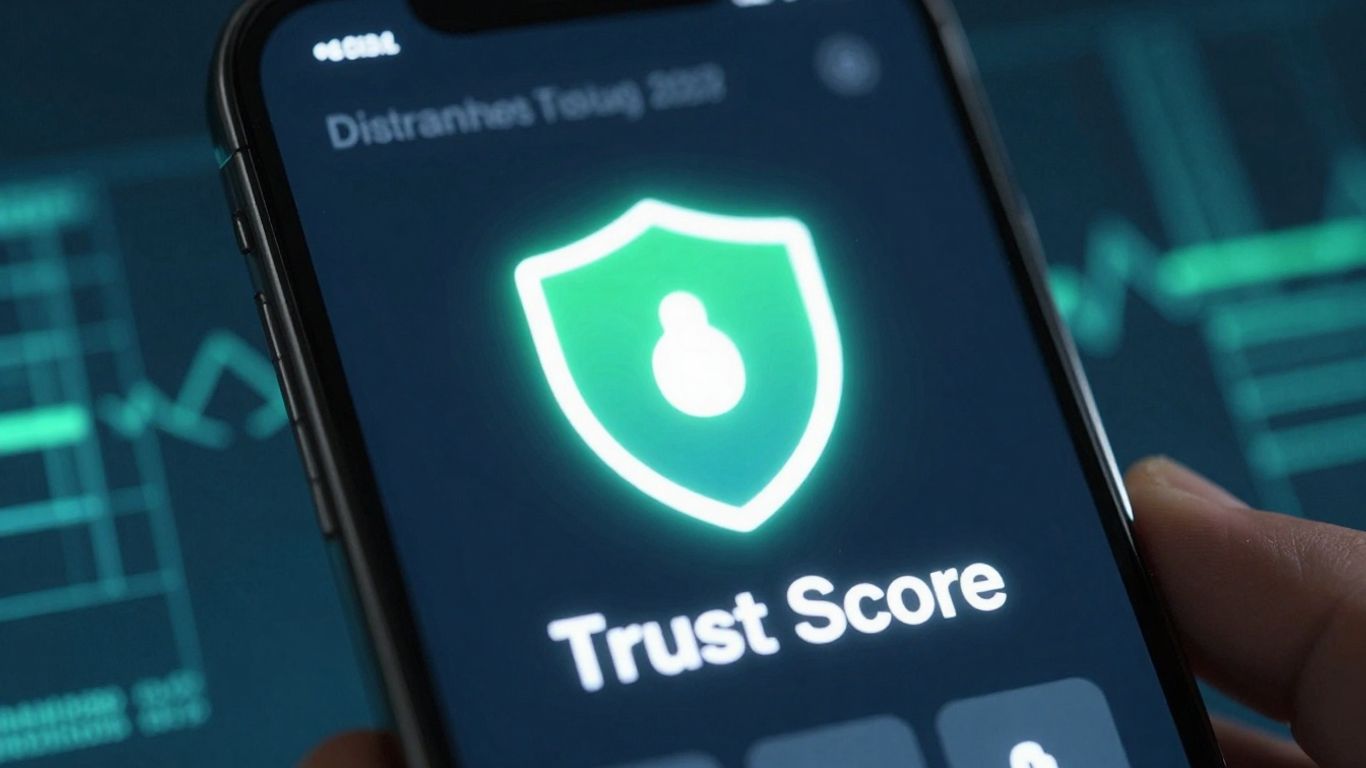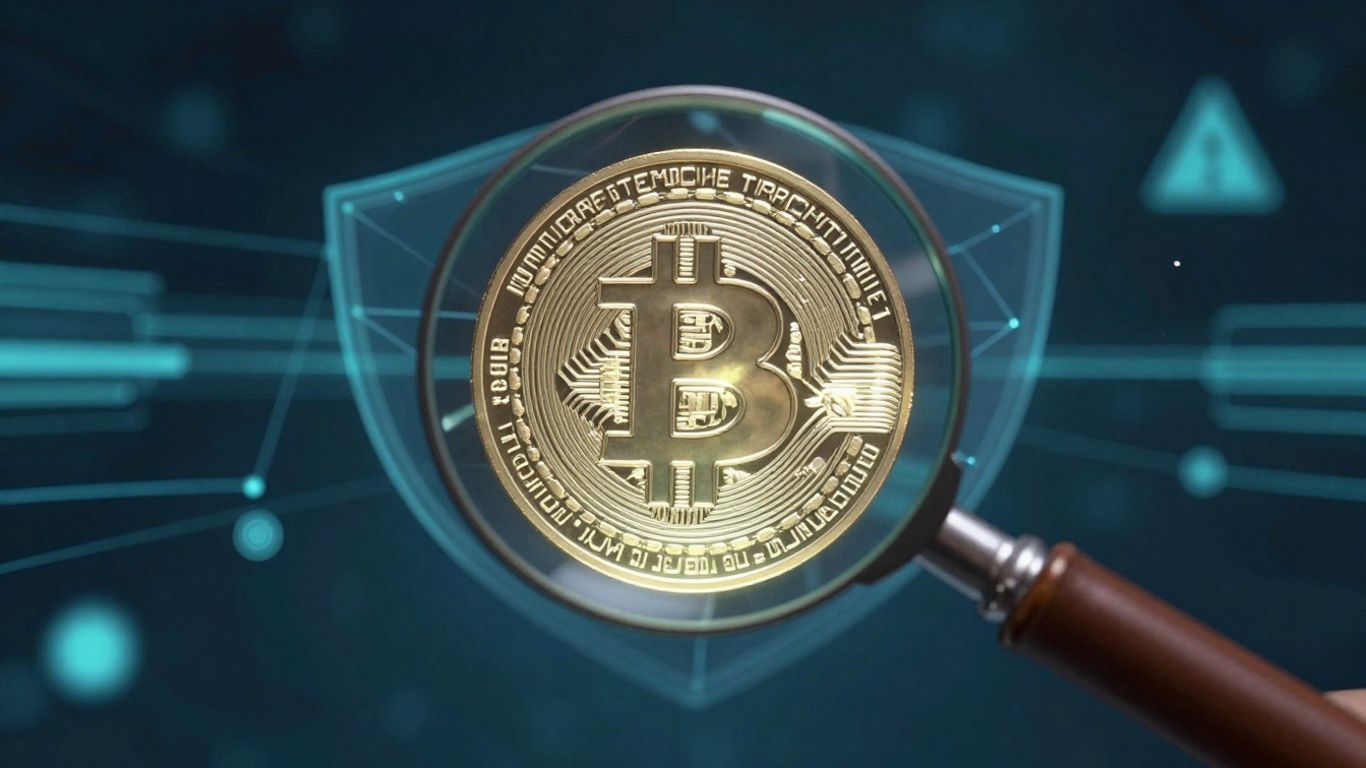[ newsletter ]
Stay ahead of Web3 threats—subscribe to our newsletter for the latest in blockchain security insights and updates.
Thank you! Your submission has been received!
Oops! Something went wrong. Please try again.
Explore the evolving landscape of blockchain and audit in modern business. Learn how auditors are adapting to new technologies and challenges.





The world of auditing is changing, and fast. New tech like blockchain is shaking things up, making old ways of doing things feel a bit… well, old. We need to get smart about how we check the books and make sure everything is on the up and up. This article is all about understanding the big picture of blockchain auditing and what it means for auditors today and tomorrow. Let's figure out how to get ahead of the curve.

Think of blockchain as a digital ledger, but way more secure and open. Every transaction gets recorded, and once it's there, it's pretty much set in stone. This means you can see exactly where everything came from and where it went, without any guesswork. It’s like having a perfect history book for all your business dealings. For auditors, this is a big deal because it makes it much easier to follow the money and spot any unusual activity. We spend less time chasing down old papers and more time actually understanding what’s happening.
Because records on a blockchain can't be easily changed or deleted, it's a really strong way to stop fraud before it even starts. If someone tries to alter a transaction, the system flags it immediately. This gives auditors a lot more confidence that the data they're looking at is real and hasn't been tampered with. It cuts down the risk of sneaky business practices slipping by.
Keeping up with rules and regulations can be a headache, but blockchain can simplify things. Since all transactions are recorded in a way that's easy to check and very hard to fake, proving you're following the rules becomes much simpler. Auditors can quickly look at the blockchain record and verify that everything is in order. This saves a ton of time and effort compared to digging through piles of old documents. It’s like having a ready-made report that shows everything is above board.
The way auditors do their jobs is changing, and honestly, it's about time. Gone are the days when auditing was just about sifting through piles of paper and checking ledgers. The digital world has thrown a whole new set of tools and challenges at us, and auditors really need to keep up. It's not just about crunching numbers anymore; it's about understanding the whole digital ecosystem a company operates in.
Auditors today can't just be number wizards. They've got to be tech-savvy. This means getting comfortable with things like data analytics, understanding how artificial intelligence (AI) works, and even getting a handle on cybersecurity. It's a constant learning game. You have to be willing to update your skills regularly, or you'll get left behind. Think of it like this: if you were a mechanic who refused to learn about fuel injection, you wouldn't be much use these days, right? It's kind of the same for auditors.
The shift means auditors are moving from just looking backward at what happened to also looking forward, helping companies manage risks associated with new technologies. It's a more proactive stance.
Audits aren't just about financial statements anymore. They're broadening to include things like how well a company protects its digital information. With so much business happening online, checking a company's cybersecurity measures is becoming a standard part of the audit. It's about making sure sensitive data is safe from online threats. This also means auditors might need to look at how companies use new technologies, like blockchain, to make sure they're being used correctly and securely. It's a bigger picture now, covering more than just the balance sheet. For example, understanding finance positions is now crucial for auditors to provide comprehensive insights [e5b8].
This is where blockchain really shines for auditors. Remember that digital notebook idea? Because blockchain creates an unchangeable record of transactions, it makes the audit trail incredibly strong. It's much harder for someone to tamper with records or hide fraudulent activity when everything is logged permanently and transparently. This means auditors can spend less time trying to verify the authenticity of individual transactions and more time analyzing the overall financial health and risks of a business. It really boosts confidence in the data being reviewed.
The world of auditing is definitely not what it used to be, and if you're an auditor looking at blockchain, you've got to keep pace. It's not just about crunching numbers anymore; it's about grasping the tech behind them. You need to feel comfortable with data and understand how these new digital systems actually work. This shift means auditors need to become more like tech-savvy investigators.
Auditors today need to get friendly with data. This means more than just looking at spreadsheets. You'll be working with big datasets, finding patterns, and spotting things that seem off. Knowing how to use data analysis tools is a must. It helps you dig deeper into transactions and see what's really going on. Think of it like this: you wouldn't try to fix a car without knowing what a wrench is, right? Auditing blockchain is similar, but your tools are different.
Here are some key areas to focus on:
The ability to interpret complex data sets and identify anomalies is becoming as important as traditional accounting principles. Keeping up with technology means learning how to use the new tools that are coming out. This isn't a one-time thing; it's an ongoing process. You have to be willing to learn and adapt as new software and platforms emerge.
When we talk about blockchain, smart contracts are a big part of the picture. These are basically self-executing contracts with the terms of the agreement directly written into code. For auditors, this means you need to understand how these contracts work and, more importantly, how to verify that the code is doing what it's supposed to do. It's not enough to just look at the financial outcome; you have to look at the logic behind it. This involves understanding programming logic and being able to review code for errors or vulnerabilities. It’s a whole new layer to the audit process, moving beyond just financial statements to the underlying digital agreements. You can find more about this in a comprehensive crypto security audit here.
Beyond just the transactions and smart contracts, auditors need to get a handle on the security of the entire blockchain system. This means looking at how the network is set up, how nodes communicate, and what measures are in place to prevent attacks. Are there proper controls to protect private keys? How is consensus achieved, and is it robust? Understanding cryptography basics and common cybersecurity threats relevant to distributed ledger technology is becoming a standard part of the auditor's toolkit. It’s about making sure the whole digital infrastructure is sound and protected from potential breaches.
It’s easy to think of blockchain as just for Bitcoin and other digital coins, but that’s really not the whole story anymore. This technology is popping up in all sorts of financial areas, from tracking goods in a supply chain to how we handle travel bookings. This means auditors have to get a handle on how these systems work and how to check them properly.
Blockchain adds value in situations where several different parties need to share and use the same information without relying on one central boss. Think about making payments across borders or keeping track of who owns what. It’s about creating a shared truth that everyone can see and trust. For example, platforms like Ripple are already smoothing out payment processes, and others are built for super-fast transactions in capital markets. This move towards using blockchain in everyday business operations means auditors need to be ready for a wider range of applications than just digital money. We're seeing it used for things like:
When we talk about smart contracts, these are basically self-executing agreements written in code. Auditors will need to look closely at the logic inside these contracts to make sure they do what they're supposed to and don't have hidden problems. It’s like reviewing a complex legal document, but instead of legal terms, it’s code. Then there’s verifying the transactions themselves. Auditors need ways to confirm that the information being recorded on the blockchain is correct and complete. This is where the immutable nature of blockchain really helps, providing a tamper-proof history. You can find more about how this improves public fund management in a detailed report on blockchain for public funds.
Beyond checking the transactions and contracts, auditors also have to look at the security of the whole blockchain system. Is it protected from people trying to break in or mess with the data? This involves understanding the different types of blockchain networks – public ones like Ethereum or SUI, which are open to everyone, and private ones like RippleNet, which are more controlled. Each has its own security considerations. The goal is to make sure the system is robust and trustworthy.
The integration of blockchain into financial systems offers a new level of openness and safety. However, it also means auditors must update their skills and methods to effectively check these new kinds of systems. It's about making sure the digital gears of finance turn smoothly and securely.
Bringing blockchain into the auditing world isn't just about new tools; it brings up some serious ethical questions and professional hurdles we need to think about. It’s a bit like learning to drive a new kind of car – exciting, but you need to know the rules of the road.
Our reputation as auditors is built on being independent and sticking to professional standards. When we start using new technologies like blockchain, we need to make sure these core principles aren't compromised. For instance, if the company we're auditing is also the one providing the blockchain auditing tools, that creates a potential conflict of interest. We need to be clear about our role and ensure that our judgment isn't clouded by who is paying us or what technology we're using. It’s about staying objective and making sure our audit opinions are based on facts and sound professional judgment, not on the convenience of the technology. This is a key part of verifying transactions and data access. Auditors must always prioritize unbiased assessment over technological ease.
When we talk about blockchain, we're often dealing with a lot of sensitive information. While the technology itself is designed to be secure, how we handle that data before it even gets onto the chain, and how we access it afterward, is a big deal. Auditors need to be super careful about who sees what and make sure everything is protected from unauthorized eyes. It’s not just about the blockchain itself, but the whole process around it. We have to think about things like:
The decentralized nature of blockchain means data is spread out, which can be good for security, but it also means we need to be extra vigilant about how we manage access and protect individual privacy. It’s a delicate balance. If we're using AI or machine learning tools to help with blockchain audits, we have to ask if those tools are fair. Algorithms can sometimes have hidden biases, which could lead to skewed results or unfair conclusions. Auditors must be able to question and understand how these algorithms arrive at their findings. This means looking under the hood, so to speak, to make sure the technology isn't accidentally creating new problems while trying to solve old ones. We need to be able to explain why a certain transaction was flagged or why a risk was identified, and that explanation needs to hold up. It’s about making sure the technology works for everyone, not just a select few. The increasing prevalence of artificial intelligence (AI) is causing uncertainty among CPAs regarding its potential impact on the accounting profession [8312].
To stay relevant in this rapidly changing field, auditors need to commit to ongoing learning. This means keeping up with new blockchain protocols, understanding smart contract functionalities, and staying informed about the latest security threats. Beyond technical skills, a strong ethical compass is non-negotiable. Auditors must be prepared to address situations where the technology might present new avenues for misconduct or where data integrity could be compromised. This requires a proactive approach to ethical decision-making, ensuring that professional skepticism is applied rigorously, even when faced with complex, novel systems. It’s about making sure our professional judgment remains sound, no matter what new tech comes our way.

So, where does all this leave us? It's pretty clear that auditing in the blockchain world is a whole different ballgame than what we're used to. It's not just about checking numbers anymore; it's about understanding the code, the tech, and how it all fits together. We've seen how blockchain itself can make records more trustworthy and how new tools, like AI, are changing the game for auditors. But it's not all smooth sailing. We've got to keep learning, stay flexible, and always remember the basics of being independent and ethical, no matter what new tech comes our way.
Instead of just auditing code once it's written, there's a big push towards checking systems all the time, in real-time. This means constantly watching smart contracts and blockchain networks for any unusual activity. It’s like having a security guard watching over your digital assets 24/7. This approach can help catch attacks as they are happening, giving developers a chance to react quickly and stop big problems from occurring. It’s all about being ready and staying ahead of potential threats. This shift towards continuous oversight means auditors can move from a reactive stance to a more proactive one, identifying and addressing risks as they emerge rather than after the fact.
Here’s what real-time monitoring can involve:
Most traditional audits are done by a single company or a group of experts. However, there's growing interest in decentralized auditing. This means having multiple parties involved in the auditing process. This approach could bring more diverse perspectives and potentially increase the overall reliability of the audit findings. It’s a way to spread the responsibility and reduce reliance on a single point of review. The core idea is that by using blockchain, we get a level of certainty about transaction history that traditional systems just can't match. This level of detail makes it simpler to spot any odd activity or unauthorized access. It really cuts down on the guesswork involved in traditional audits. You can find more information on blockchain technology and its impact.
Automation is going to play an even bigger role. Think about AI and machine learning helping to sift through massive amounts of data, spotting patterns that humans might miss. This frees up auditors to focus on the more complex, judgment-based tasks. It’s not about replacing auditors, but about giving them better tools to do their jobs more effectively. The potential for efficiency and accuracy is huge.
The integration of blockchain into financial systems offers unprecedented transparency and security. However, it also requires auditors to adapt their skills and methodologies to effectively audit these new systems.
Ultimately, all these changes are about making audits more valuable and relevant. By using new technologies, auditors can provide deeper insights, identify risks more effectively, and offer more timely and accurate information. It’s about providing assurance in a digital world, and that’s a pretty exciting prospect.
So, you've got these fancy blockchain audit tools. That's great, but just having them isn't the whole story. You've got to use them smart. Think of it like having a top-notch toolbox; it's only useful if you know which tool to grab for which job.
Automated tools are your workhorses. They can zip through code and data, catching the obvious stuff, like a quick scan for common security flaws. They're super fast for the heavy lifting. But, and this is a big but, they can miss the subtle things. Logic errors that only make sense in a specific business context, or weird transaction patterns that seem off to a human eye – machines might just let those slide. That's where you, the auditor, come in. Your brain is still the best tool for spotting nuances and understanding the bigger picture. It’s about pairing the speed of machines with the insight of people. You need both to really get a handle on what's going on.
The blockchain space moves at warp speed. New vulnerabilities pop up, and new ways to do things emerge constantly. Your audit tools need to keep up. If you're not regularly updating the software, you're essentially auditing with outdated information. It's like trying to use a flip phone to navigate today's internet. Make sure your tools are patched, updated, and that you're aware of any new features or changes that could affect your audit process. This also means keeping your own knowledge current; you can find more about auditing cryptocurrency and its evolving nature.
Once you've used your tools and done your checks, don't just hand over a dry report. Think about what the findings mean for the business. How do the security issues or compliance gaps affect their operations? Can you suggest ways to improve their processes using blockchain more effectively? Your role is shifting from just checking boxes to being a trusted advisor. This means understanding how blockchain fits into their overall business strategy and offering insights that help them grow and stay secure. It's about adding real value beyond just the audit itself.
The goal isn't just to find problems, but to help the business understand their digital landscape better and make smarter decisions moving forward. This requires a blend of technical know-how and business acumen.
So, where does all this leave us? It's pretty clear that the way we audit is changing, and fast. Blockchain and other new tech aren't just buzzwords anymore; they're becoming part of how businesses operate and how we check their books. Auditors really need to get comfortable with these tools and learn new skills, or they'll get left behind. It’s not just about keeping up with the latest gadgets, though. It’s about making sure we can still trust the systems we rely on, and that means staying sharp, ethical, and ready to adapt. The future of auditing is looking more automated and more connected, and that’s a good thing for everyone involved.
Blockchain auditing is like being a super-sleuth for digital money and records. It involves checking if the systems that use blockchain technology, like those for digital coins or tracking goods, are safe, work correctly, and follow all the rules. We look very closely at the digital records to make sure nobody has tampered with them and that everything is fair and honest.
Blockchain is like a super secure digital diary that everyone involved can see. This makes it much easier to trust the numbers and see exactly where money is going. It also makes it simpler to follow the rules because everything is tracked and verified, making audits more reliable.
Because it's nearly impossible to change or delete records on a blockchain without everyone noticing, it's a powerful way to stop fraud. If someone tries to alter the records, the blockchain itself will show it. This gives auditors more confidence that the information they are reviewing is accurate and hasn't been messed with.
Yes, absolutely! The world of auditing is changing quickly. Auditors need to learn about new technologies like blockchain, how to analyze lots of data, and understand cybersecurity. It's all about keeping up with the latest tools and techniques to do the job well.
Definitely! Blockchain isn't just for digital money anymore. It's being used in many different areas, like tracking products in supply chains or managing travel information. This means auditors need to understand how these systems work and how to check them.
One big challenge is making sure the technology is fair and private for everyone. Auditors also need to stay independent, meaning they can't let who's paying them influence their findings. Plus, they constantly need to keep learning new things because the technology changes so fast.


